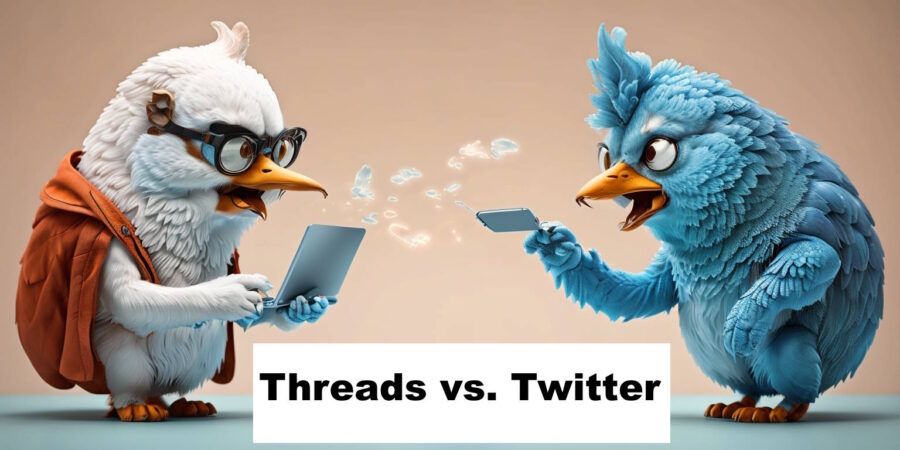Threads to be a platform for culture rather than politics
Introduction:
In today’s digital landscape, social media platforms have become the modern mediums for sharing ideas, art, and culture. Meta’s new platform, Threads, is a runaway success. It has claimed that the platform reached 100 million users in only five days. News about it dominates the blogosphere. Threads seeks to emphasize culture over politics, creating a vibrant space for communities to connect and engage. However, as with any new platform, there are both praises and criticisms surrounding its functionality and design. Let’s explore the evolution of Threads, the power of art in times of crisis, and the ongoing debate about the intersection of art and politics.
Threads – A Platform for Culture, Not Politics:
Threads, curated by Adam Mosseri, has garnered recognition for its success in prioritizing culture. Its focus on vibrant communities such as sports, music, fashion, beauty, and entertainment provides users with a refuge from politics and hard news. By nurturing a diverse range of interests, Threads aims to create a platform that fosters meaningful connections and discussions.
Separating Politics from Culture:
Addressing the relationship between politics and art, we turn to John Berger’s renowned book, ‘Ways of Seeing.’ Berger explores how words and images shape the meaning of art, and the influence of museums and media on public perception. While social media platforms like Facebook, Twitter, and Instagram have democratized art, they have also unleashed a range of positive and negative consequences. The imposition of false standards of desirability through social media can influence politics and public opinion, highlighting the complex interplay between culture and politics.
The Power of Art in Times of Crisis:
Throughout history, artists, musicians, and writers have played pivotal roles in mobilizing societies during times of crisis. Simon Schama’s documentary, ‘History of Now,’ delves into the profound impact of art on driving social change. Picasso’s iconic painting, ‘Guernica,’ stands as a prime example of art’s ability to both protest and reflect the prevailing times. For Picasso, painting was more than mere decoration; it was an instrument of war. The intricate relationship between politics and art becomes evident as artworks possess multiple layers of meaning and interpretation.
The Debate – Is Art Purely Political?:
As the debate surrounding the role of art in society ensues, tensions rise. Some argue that art is inherently political, while others advocate for artistic integrity triumphing over external control. Marxist professors and proponents of the ‘culture war’ both assert the political nature of art. Yet, the discourse remains ongoing, with questions surrounding the delicate balance between art, politics, and artistic integrity.
Subversive Political Message in Comics:
Cartoons, such as Quino’s Mafalda and Bill Watterson’s Calvin and Hobbes, skillfully deliver political messages in a subversive manner. Mafalda critiques social forces and political dynamics, while Calvin and Hobbes take aim at mindless consumerism and American capitalism. By utilizing comics, these artists challenge societal norms and spark contemplation.
The Power of Art and Politics:
Remarkably, art possesses the unique ability to transcend political boundaries, leaving readers enraptured in a powerful emotional experience. It is difficult to find the precise English term for this feeling, but it can be likened to “food for the soul.” True artistic expression has the potential to resonate even with those who may oppose the artist’s political beliefs.
The Influence of Public Sentiment:
In the ever-changing landscape of public sentiment, unpredictable shifts can defy powerful classes and break free from restraints. The internet, with its inherent desire for information to be free, acts as a catalyst for truth to eventually come to light. Amid a world burdened by political turmoil, there exists a significant audience seeking refuge in non-political content like amusing cat videos and captivating photos.
Conclusion:
Threads, Meta’s innovative platform, exemplifies the power of cultivating culture in the digital sphere. By prioritizing vibrant communities and limiting the intrusion of politics, it provides users with a space to connect, share, and discuss their passions. The intricate relationship between art, politics, and culture remains a subject of fervent debate, as artists continue to challenge societal norms and inspire change. As we navigate this complex terrain, let us appreciate the profound impact art can have on shaping perceptions, empowering communities, and evoking emotions that transcend political boundaries.




Leave a Reply